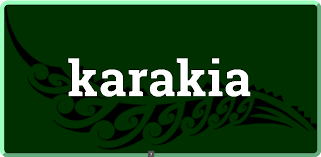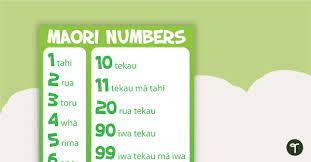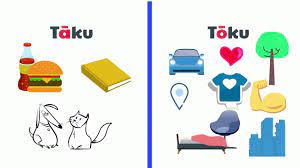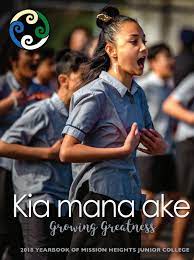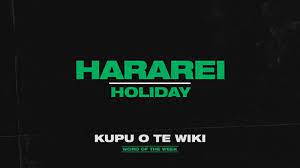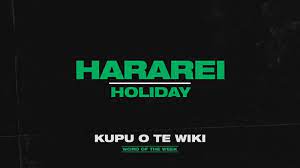10 Te Reo Māori 1
Section outline
-
Nau mai, haere mai!
Mihimihi
E te whānau, nau mai hoki mai ki te reo māori 2023. Ko te tūmanako, he tino pai ō tātou haerenga ki te reo i tēnei tau!
Welcome to Year 10 te reo māori this year. I hope that we have an enjoyable journey together.
TOPICS
- Mihimihi
- Ko au me tōku whānau
- Te āhua o ngā tangata
- Marae & Pōhwiri
-
-
Prepare a profile of a whānau member or ancestor on a google slideshow OR poster.
You may include (but are not limited to) the following information in your presentation
- Pepeha (of chosen person)
- Whakapapa chart (family tree) showing your connection to them
- Where they were born
- Where they grew up
- Where they went to school
- Their occupation
- Where the person has worked/works now
- Who the person married
- The person’s children, how many (if any)
- Why you have chosen this person
- What do you admire about them?
- A whakatauki to explain something about them.
Notes:
Biographical information should. be in te reo māori
Explanation of your whakatauki and why you admire the person can be written in English
-
-
Whakawhanaungatanga
This week we will some activities to get to know each other better or to become more like a family. It will also mean learning more about who you are and connecting with your whakapapa.
Task
You will research some information about yourself to share with the class. It should include:
- name and description of a place that one of your ancestors came from;
- whakapapa of your family member that came from that place
- description of the place ( geographical features, population etc)
- share a well known story about one of your ancestors or a myth or legend from that place.
-
Mihimihi
Learning Outcomes:
Students will be able to:
- describe tikanga (customs) associated with mihi
- mihi to your classmates
- perform a waiata tautoko
- recite a new karakia
Whakatauki
“He aha te mea nui o te ao? He tangata, he tangata, he tangata!”
What is the most important thing in the world? It is people, it is people, it is people!
Manaakitanga or caring for people is of the utmost importance in te ao Māori. Whakawhanaungatanga is about building relationships, acknowledging people for who they are and trying to make connections.
Tikanga Māori - Inoi / Karakia/ Mihimihi/ Waiata tautoko
In Te Ao Māori karakia are ritual chants invoking spiritual guidance and protection. They are performed in every aspect of life. For example: welcoming the dawn and farewelling the day, to ensure a safe journey, blessing food, carving a wharenui etc. With the introduction of Christianity to New Zealand in the 19th Century, new karakia were written to acknowledge the Christian God and Jesus Christ.
Similarly in most gatherings (hui) it is customary for a person to welcome everyone that is attending by performing a mihi whakatau. Following the mihi a waiata is sung in support of the person who welcomed everyone. In class this year all students will learn waiata and how to give a mihi whakatau.
-
Tikanga Māori
Tikanga come form the word 'tika' which means to be correct or true. In te ao Māori, it is tikanga or correct and proper to follow a mihi or speech with a waiata tautoko.
This week we will begin to learn a new waiata to begin our class before karakia.
Ehara i te mea
Ehara i te mea
Nō nāianei te aroha
Nō nga tūpuna
Tuku iho, tuku iho
Te whenua, te whenua
Te oranga o te iwi
Nō nga tūpuna
Tuku iho, tuku iho
Whakapono, tumanako
Te aroha te aroha;
Nō nga tūpuna
Tuku iho, tuku iho.
-
Achievement Objectives:
Students should be able to:
1.1 greet, farewell, and acknowledge people and respond to greetings and acknowledgments
1.2 introduce themselves and others and respond to introductions
1.4 communicate about personal information, such as name, parents’ and grandparents’ names, iwi, hapū, mountain and river, or home town and place of family origin
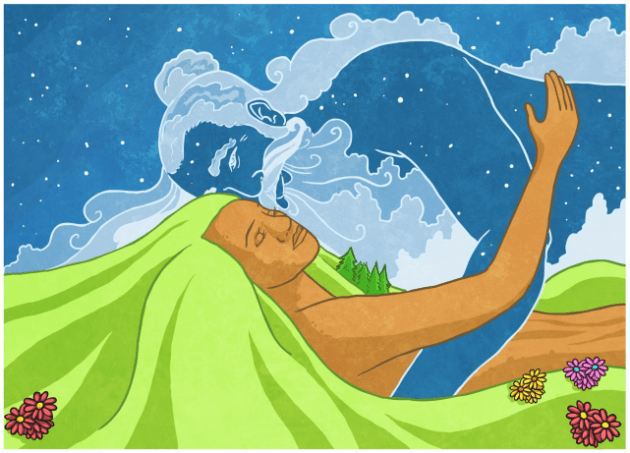
Tōku Pepeha
Over the next few week you will learn about pepeha. In te ao Māori, your pepeha connects you to your whakapapa and goes all the way back to the creation of the world when the sky father Ranginui and mother earth Papatuānuku were separated to allow light to come into the world. We recognise our mountain, river or ocean,waka, iwi, hapū, and our marae (including wharenui & wharekai). The last thing we acknowledge is ourselves because we as humans were created last.
For non-māori, your pepeha should also take you back to where your ancestors came from and acknowledge the mountain, rivers etc that relate to that place.
You will need to do some research about where your ancestors originally came from so that you can connect to them and their home land.
-
Whakapapa
Whakapapa is our family history or genealogy. It’s knowing who we are and where we’re from. It provides us with identity and history, and connects us with our tūpuna with our tūpuna, whānau, whenua, iwi and marae.
Whakapapa was traditionally passed down through kōrero and waiata, as well as shared through carvings and karakia.
-
Whakapapa
Learning outcomes
You will be able to:
- draw a whakapapa chart accurately with correct symbols from a given text
- say who different people are on a family tree
Tasks on google classroom
-
Learning outcomes
This week you will learn:
- how to say where someone was born
- where a person grew up
- where they come from originally
Sentence patterns:
Birth year & place: I whānau mai (person) i te tau (year) i (place)
I whānau mai ahau i te tau 1990 i Tāmaki Makaurau. I was born in the year 1990 in Auckland
Where you grew up: I tipu ake (person) i (place)
I tipu ake ahau i Ahitereiria. I grew up in Australia
Nō (iwi or place of ancestors origin) person
Nō Ngātikahungnu ahau I am from Ngāti Kahungnu
-
Likes & Dislikes
This week you will learn how to say what people like and dislike.
He pai ki au te [noun] I like [.......] He pai ki ahau ngā kina I like kinas
Kāore e pai ki ahau te/ngā [noun] I don't like [........] Kāore e pai ki ahau ngā huawhenua I don't like vegetables
-
This week you will be working on your assessment in class.
-
Nau mai hoki mai whānau
Over the next three weeks you will be putting together your self-profile for your assessment
-
Ko wai au?
Assessment due
-
FOCUS / ARONGA learning intentions:
- We are FOCUSING.. electing and using language, symbols, and texts to communicate
-
EXPLORE / TŪHURA learning intentions:
- We are EXPLORING physical characteristics, personality and feelings
-
PLAN & DO / WHAKAMAHI learning intentions:
- We are PLANNING so that we can demonstrate our final presentation
-
EXPLORE / TŪHURA learning intentions:
- We are EXPLORING to find and Identify and describe the characteristics of music associated with cultural contexts.
- We are EXPLORING to analyse and interpret knowledge of people associated with Te Ao Haka
Paearu Angitu / Success Criteria: I can/have...
- Identify and describe the characteristics of music associated with a range of sound environments, in relation to historical, social, and cultural contexts.
- Demonstrate knowledge of people associated with Māori performing arts
Hei Mahi / Activities:
- Look into Assessment 2: Te Ao Haka Dignitary
- Research about one Māori Dignitary
Mahi Kāinga / Homework:
- Assessment 2: Te Ao Haka Dignitary
-
EXPLORE / TŪHURA learning intentions:
- We are EXPLORING to find and Identify and describe the characteristics of music associated with cultural contexts.
- We are EXPLORING to analyse and interpret knowledge of people associated with Te Ao Haka
Paearu Angitu / Success Criteria: I can/have...
- Identify and describe the characteristics of music associated with a range of sound environments, in relation to historical, social, and cultural contexts.
- Demonstrate knowledge of people associated within Te Ao Haka
Hei Mahi / Activities:
- Video analyse
- Meaning
- Effect
- Representation - Quickfire Case Study
- Split into 2 groups
- 10 mins to research
* Date of birth
* Place of birth
* Kapa Haka associated with
* Song they may have composed
(Reason behind their composition)
* Find a video of their song or them performing
- Dignitaries: Rob Ruha, Pere Wihongi
Mahi Kāinga / Homework:
- Assessment 2: Te Ao Haka Dignitary
-
EXPLORE / TŪHURA learning intentions:
- We are EXPLORING to find and Identify and describe the characteristics of music associated with cultural contexts.
- We are EXPLORING to analyse and interpret knowledge of people associated with Te Ao Haka
Paearu Angitu / Success Criteria: I can/have...
- Identify and describe the characteristics of music associated with a range of sound environments, in relation to historical, social, and cultural contexts.
- Demonstrate knowledge of people associated within Te Ao Haka
Hei Mahi / Activities:
- Video
Te Ao Haka Journey - Waiata Hou
He aha te hau?
- Tikanga
- Words
- Rangi
He aha te hau link
Mahi Kāinga / Homework:
- Assessment 2: Te Ao Haka Dignitary

